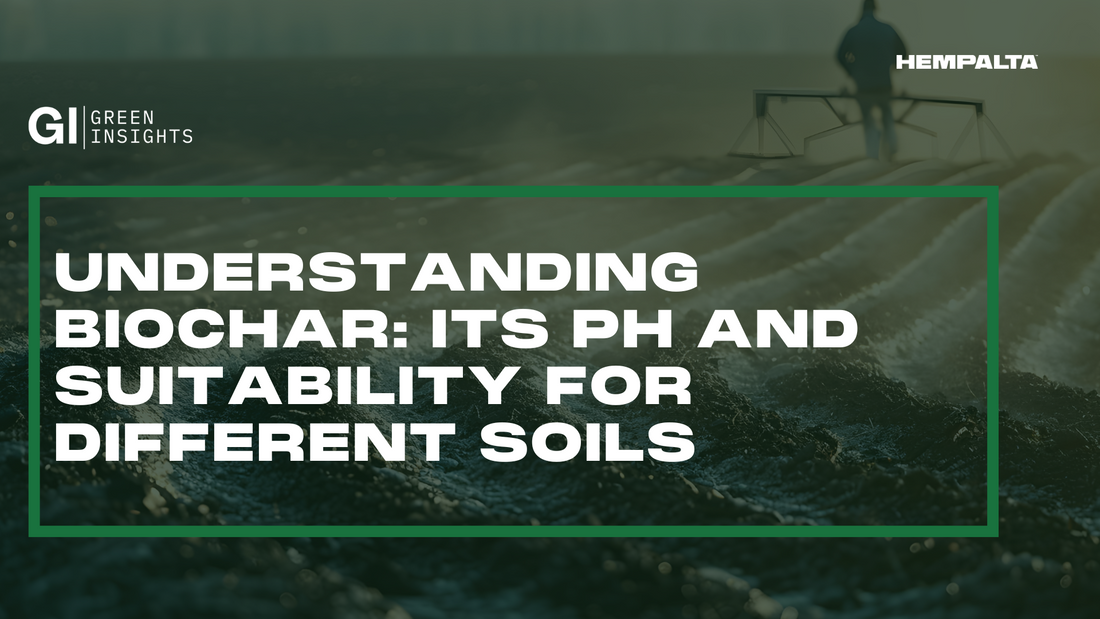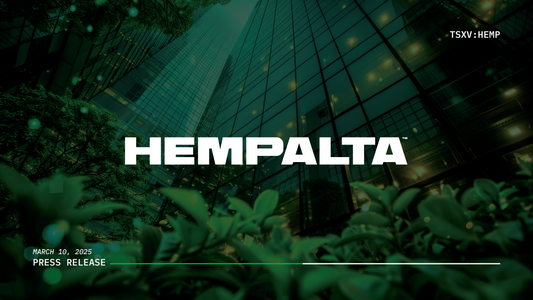
Understanding Biochar: Its pH and Suitability for Different Soils
Share
For the last few weeks on Green Insights, we've been exploring the fascinating world of biochar. Now, let's dive deeper into a crucial aspect of biochar: its pH and how it interacts with different soil types. Biochar, typically alkaline with a pH ranging between 7 and 10, acts as a powerful liming agent. This property makes it especially beneficial for acidic soils, but it also offers advantages in alkaline conditions. By understanding the relationship between biochar's pH and soil health, we can better harness its potential to improve soil quality, enhance plant growth, and contribute to sustainable agriculture.
Biochar and pH
Biochar typically has a high pH, often ranging between 7 and 10, depending on the feedstock used and the conditions of the pyrolysis process. This alkaline nature means that biochar can act as a liming agent, raising the pH of acidic soils. Hemp is pH neutral.
Biochar in Acidic Soils
Acidic soils, with a pH below 7, can benefit significantly from the application of biochar. The key advantages include:
-
pH Neutralization: The alkaline nature of biochar helps to neutralize soil acidity, creating a more balanced pH environment that is conducive to plant growth.
-
Nutrient Availability: Many essential nutrients become more available to plants in neutral to slightly acidic soils. By raising the pH, biochar can enhance nutrient uptake.
-
Improved Microbial Activity: Beneficial soil microbes often thrive better in neutral pH environments. By reducing soil acidity, biochar can boost microbial activity, leading to healthier soil ecosystems.
Biochar in Alkaline Soils
Alkaline soils, with a pH above 7, may not benefit as much from the pH-adjusting properties of biochar. However, biochar can still offer significant advantages:
-
Nutrient Retention: Even in alkaline soils, biochar's porous structure helps retain essential nutrients and prevent leaching.
-
Water Holding Capacity: Biochar improves the soil's ability to retain water, which can be particularly beneficial in arid regions with alkaline soils.
-
Enhanced Soil Structure: The addition of biochar can improve soil texture, making it easier for plant roots to penetrate and access nutrients.





